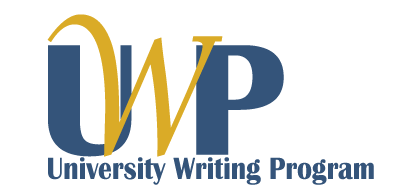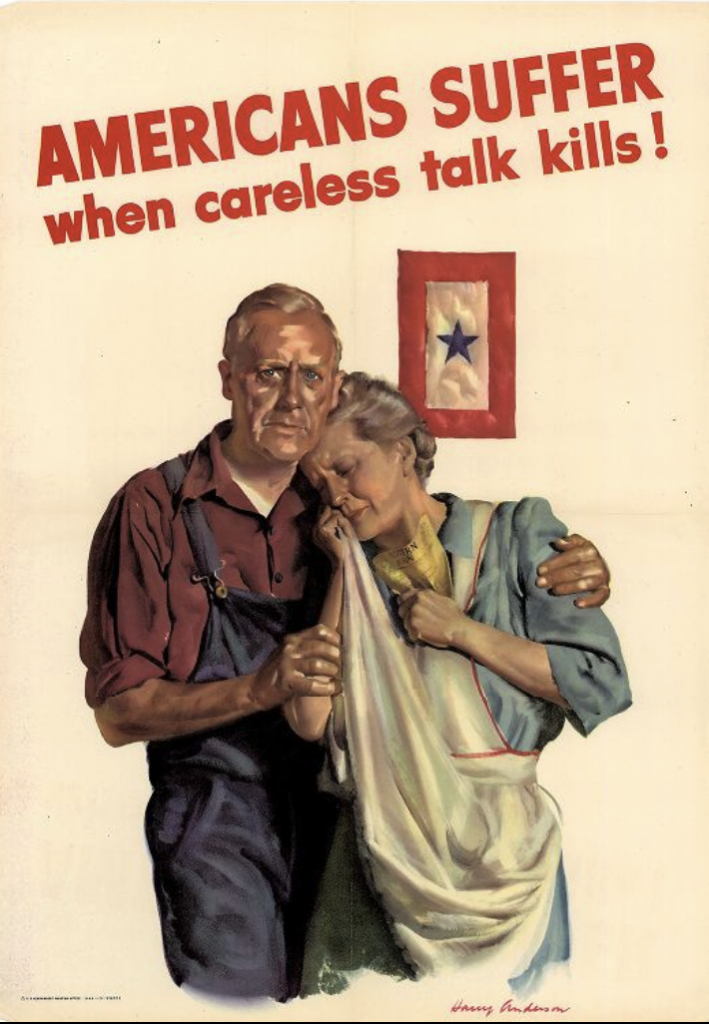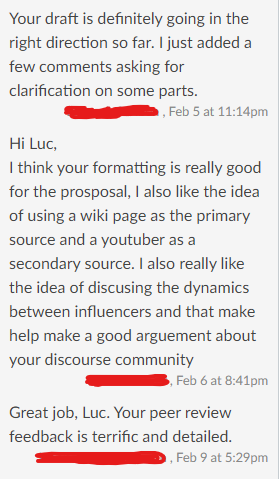UWP (Introduction to Academic Literacies) was an outstanding class that I had the pleasure of taking during my time at UC Davis. The UWP course is comprised of multiple assignments and activities that all work towards a few guidelines. These of which are, Rhetorical Knowledge development, Processes, Knowledge of Conventions, Research, and Metacognition. Today I want to give an example of all five of these guidelines that I employed and how they helped me better understand reading and writing.

For starters, the first category that I thought I learned the most about was the rhetorical knowledge guideline. Here I was able to learn about understanding and applying key rhetorical concepts like revision, purpose, audience, genre, etc. One immediate assignment that comes to mind here is the Discussion in which we discussed Rhetorical Analysis Practice. Here we were tasked to take a medium like a cartoon and analyze its uses of ethos, pathos, and logos. These three are excellent drivers of purpose. In my case, I used a propaganda poster from the 2nd world war. In this analysis, I was able to discover how the United States employed both pathos and logos in its propaganda. I learned that they use strong emotions of loss to convince their audience to accomplish certain tasks and on top of that they also use logos to drive those points with logic. By completing this assignment, I was able to have a greater understanding of rhetorical knowledge and more specifically rhetorical purpose in writing.

Another category that I would like to discuss is the “process” of writing. This is defined as “reading and composing as recursive, social processes” and “practice reading, researching, and composing as a social process and revise and edit multiple drafts based on feedback from peers and the instructor.” This means that the processes are how we pushed through to make our writing better and our ability to adapt. For this section, the assignment called, “Research Proposal Draft/Peer Review.” In this assignment, we were tasked with developing our first ideas as to what our course research paper was going to be and what types of resources we could use. We were then assigned two peers to review our work and give good criticism on what should be done with our proposal. I wrote about the Team Fortress discourse community and theorized the idea of connecting a Youtuber’s influence to community actions. After receiving criticism from my peers, I was able to better adapt my paper to the given assignment. By completing this action, I was better introduced to the idea of a process in the writing world. This assignment taught me how to better revise my work and apply it better to its unique social situation.

The next category to cover is the “knowledge of conventions” guideline. The conventions are a writer’s “expectations of form, language, and format that are shaped by composers, genres, and discourse communities.” Here one assignment stands out the most. This being the “The Boat” discussion. Here we were tasked with reading a simple exert from a novel, and then comparing our initial reactions to the reading with an online variant that had music, sound effects, and images to set a proper tone to the reading. For this assignment, I was able to grasp the idea of conventions. I was able to create an expectation of the language and format used by the composer of this work.

Another interesting section that we were able to cover was the Research guideline. This was arguably the most heavily emphasized section of the guidelines in which it is detailed to be, “research to evaluate, analyze, and synthesize prior knowledge on a subject and create new knowledge through primary research.” It also expects students to collect and analyze research. Without a doubt, the best assignment to reference for teaching this guideline is the research paper assignment. Here I wrote about the Team Fortress Two community and wrote about how the “Team Fortress Two discourse community fosters a culture where popular content creators can wield influence with ease so long as they are perceived as entertaining and have a large follower count.” I then gathered multiple secondary sources that I used to better rationalize how a Youtuber was able to generate influence in his discourse community. For example, the Youtuber Uncle Dane saw a surge in people completing a suggestion he had made in the past. I then used a scholarly article to rationalize why this influence occurred. It happened due to both his ability to entertain and the fact that his YouTube account has several hundred thousand followers. Here I was able to learn how to better connect secondary sources to primary source information. This has helped me become an excellent argumentative writer. It also helped me to better learn how to analyze data.
The last section of guidelines that should be discussed is the Metacognition section. The best example of this guideline being taught is also from the Research paper assignment. After completing the rough draft of my paper, I was given some time to think about the choices I had made for my writing and one particular issue arose. I originally only wanted to argue that influencer follower count is the leading cause for better influence, but this was restricting. I then had to make an executive decision to add another element to this argument. I did some research and quickly found a person’s ability to entertain is a huge factor to influence and immediately added it to my paper. By doing this action I was able to exemplify my learned ability to criticize myself and demonstrate rhetorical awareness of my writing. By choosing to add more elements to my paper I was able to better my metacognition and decision-making.

After completing this course, I think that I have become a better writing student. By mastering these 5 guidelines I will be able to better write future research papers/writing assignments. This class will be an excellent teacher in writing discipline. On top of this, my professor’s decision to let us investigate discourse communities has led me to better understand the rhetorical purpose and how influence is generated in a community. This newfound skill will come in handy to determine how a discourse community works. Now that this class has been completed the greatest strength that I have developed is my ability to analyze. In my opinion, this is the most important category to learn as a future research paper writer. On the other hand, the section that could use the most work is the conventions guideline. This section did not quite click for me, and I need to better understand how to predict language. This is important, as understanding these conventions can better help you understand rhetorical knowledge which allows you to better understand argumentative writing. I will work on this in the future by writing works done by composers I don’t know and getting a better feel for how they write. I will then practice predicting other writing languages they have done. Some key points that I will take away from this class are the idea of ethos, logos, and pathos, the writing process, and how to have better metacognition. By better understanding these points I will be able to succeed better as a writer and a critique. Also, having better metacognition is great for life as it allows you to be the best person you can be. It also assists in your ability to critically think in other UC Davis courses.
Leave a comment